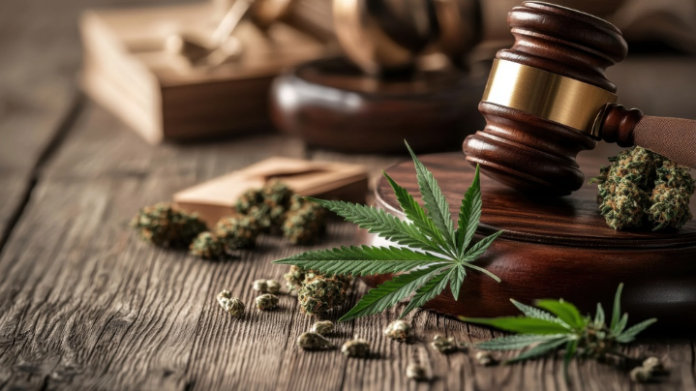While the nation waits to see how the Trump administration plans to address cannabis rescheduling, some in Congress want to take a closer look at the adequacy of state cannabis laws. Members of the House Appropriations Committee are currently working on an appropriations bill that includes a provision directing certain agencies to take a closer look at state-level regulations.
Note that the bill is only in committee right now. It needs to make it out of committee intact and then be approved by both houses of Congress before it becomes actual law. Of course, the president needs to sign the bill as well. None of this is guaranteed by any stretch.
What They Want to Know
State regulation ‘adequacy’ is not necessarily black-and-white. Members of Congress at least want to know more about “regulatory frameworks, including commonalities and novel approaches to enforcement and oversight.” That is a lot of mumbo jumbo for, “We just want to know how your states are doing things.”
It has been suggested that gathering information on state laws lays the groundwork for eventual legalization. The logic is simple: legalization would probably lead to cannabis being regulated in a way similar to alcohol. Both the federal and state governments have a hand in alcohol regulation. They would likely share cannabis regulation responsibilities as well.
The congressional move could ultimately be an exercise in futility if the Trump administration agrees to rescheduling but continues to fight against full legalization. Moving cannabis to Schedule III of the Controlled Substances Act would not make it legal across the board. But it would put cannabis in the same category as other highly regulated drugs, like ketamine.
The Practical Aspects of Adequacy
Personally, I am hoping the bill passes and the actual research is done. I’m interested in knowing the practical aspects of regulatory adequacy. Take Utah. Are the Beehive State’s regulations adequate for protecting the industry while simultaneously ensuring patients have uninterrupted access to affordable, high-quality medical cannabis?
Utah patients seem to have no trouble obtaining medical cannabis cards. A Salt Lake City organization that helps them do so, BeehiveMed, says the state’s total number of active cardholders recently eclipsed 103k. That is pretty good for a largely rural state with a comparatively small population.
On the other hand, many carded patients struggle to access medical cannabis itself. This is due to the fact that nearly all the state’s medical cannabis pharmacies are located near major population centers. There is little to no access in rural counties.
Utah’s insistence on limiting the number of licensed medical cannabis pharmacies in the state is proving inadequate to many rural patients. What can be done about it? Opinions vary among lawmakers, cannabis advocates, and patients.
Too Little or Too Much Regulation
Defining adequacy can be a tricky proposition. On the one hand, you could make the case that Utah’s regulations are too strict. You could also argue that Oklahoma is the other side of that coin, with regulations that are too lax. The big question is this: what is the standard? Perhaps that’s what Congress really wants to know.
There was no telling what Washington would do with rescheduling and full legalization. We get hints from time to time, but we also get plenty of surprises. One thing we know for sure is that Congress wants to take a closer look at state cannabis laws. What they actually do with the information they learn remains to be seen. I am not planning on any drastic changes in the short term. Maybe we’ll see something long term.

